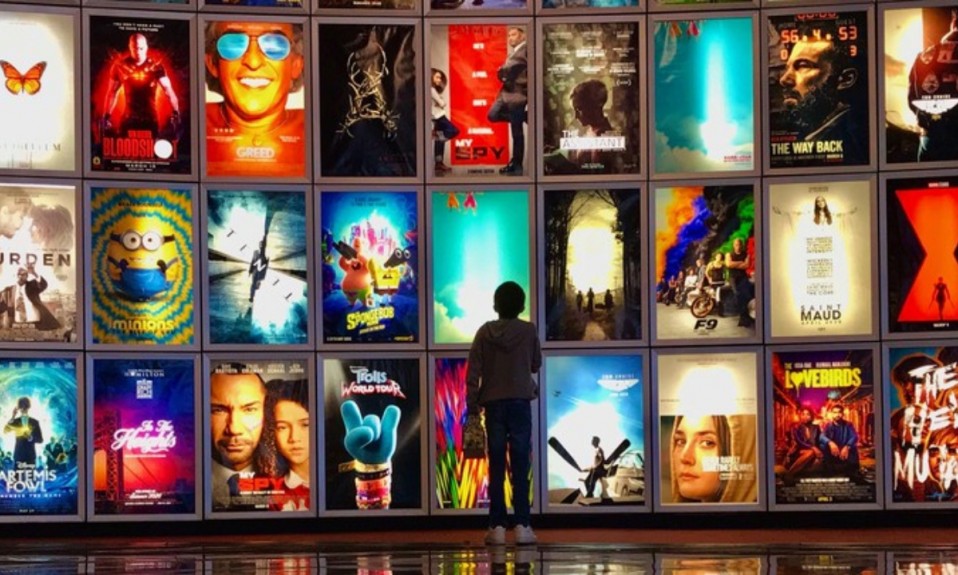A few weeks ago, the film industry was turned upside down due to shocking announcements. AMC Theatres mentioned that they would ban Universal Studios films in America and later it was also announced that Odeon and Cineworld would do the same in the UK. The reason? Universal Studios released Trolls World Tour, which broke digital sales records, directly on “premium” video on demand. After seeing the success of the release they have decided to release more films either directly to Video on Demand or drastically reduce the time movies go from the cinemas to home entertainment platforms. Because of the lockdown, many production companies need to come up with new ways to release their movies and as the audience spends more time indoors, major companies are responding to an increase in Video-on-Demand and streaming platforms subscriptions. They’re sending films now straight to streaming platforms instead of postponing the theatrical release.
While this might be a good solution for now because of the closure of the cinemas, this might not be positive for cinema chains in the long run. If this method seems to be successful for the production companies, then Universal Studios will certainly not be the last production company to “break the theatrical window”. The question remains: will breaking the theatrical window and the success of streaming platforms be the end of cinema-going as we know it?
What is the theatrical window?
Some people jump the first chance they get to watch movies on the big screen while others prefer to watch the new blockbusters from the comfort of their home. Well, in normal circumstances, the cinema-goers would have access to movies three months before others as the theatrical window is three months. However, that time between the end of the cinematic run of a movie and the moment that it will available via digital platforms and video-on-demand platforms has become smaller over the years. One of the reasons is because major companies want to make up for the loss they have to overcome due to the decline in DVD-sales. The other reason is the one we all have to deal with at the moment: The coronavirus.
Impact of COVID-19 on the film industry
That the coronavirus epidemic has had a major impact on film didn’t only become clear because of the postponing of releases, the movie-making itself but also the way movies are shown to the audience now. As mentioned before, people rely on films, even more, these days. Whether it’s to entertain their children, have a nice time with their partner or just to relax, movies are present in every household. This is being proven by the fact that Disney + has now 54.5 million subscribers worldwide since November and the amount of new Netflix subscribers in the globally during the lockdown was more than 15.8 million, double the number forecast. It comes as no surprise that recent movies like The Invisible Man (Universal), Bloodshot (Sony and Columbia Pictures), The Way Back (Warner Bros.), and Onward (Disney) were released almost immediately after the forced termination of their theatrical run.
Why would Universal & Disney consider breaking the theatrical window?
Why would big production companies such as Universal Pictures and Disney break the theatrical window? Well, that answer is plain and simple: Money. Due to the lockdown, companies aren’t able to show their movies in the cinema, and instead of pushing them back, they decide to release them anyway. People already liked watching movies from their home, maybe because of the price, the fact that they don’t have to deal with popcorn eating strangers and now even more so with the fact that they can watch movies without having to go outside and put themselves in unnecessary danger, due to the virus.
It might be a while before cinemas are back up and running as usual and before the audience flocks back to the “dark room” to immerse into the stunning movies the industry has to offer. Whether the theatrical window will stay smaller than the usual three months, even when everything is back to normal, is something that we can’t predict.
The future of film releases
Movies will always be a part of society, whether you will see them on the big screen or a smaller one. Production and distribution companies and cinema chains must work together to bring films to the biggest audience possible. On one side, the theatrical window still needs to remain as big as possible. The cinema chains won’t survive if production companies make that window smaller or just skip the cinema entirely. However, cinemas will also have to keep in mind that, despite the smaller window, people still want to watch movies on the big screen so banning movies of certain companies isn’t the right attitude either. There will always be a thirst for watching movies in the cinema and there will always be people who prefer to watch it in their own home with friends and family so why not work together and give both audiences what they want?













